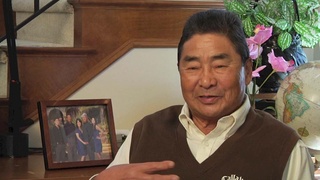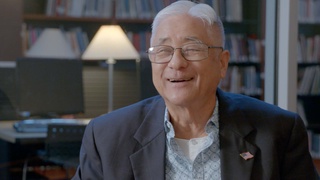Interviews
What I wanted to pass down to my children (Japanese)
(Japanese) Since they were young, I counted on my wife to raise our children. There would be times that I couldn’t help but be away [from home] due to work. [Working] from early morning to late at night—it was difficult to find a chance to spend some quality time with my kids and talk with them. I did try my best to take vacations to go on trips together as a family, but things like lecturing life lessons to my kids… I don’t recall telling my kids anything of the sort. There were discussions between my wife and me about it—about how we should be raising the kids and such. But I don’t think we did very often. In my heart, I feel that I wanted to tell my kids to have awareness that they are Japanese. It’s not something like “you have to do this or that because you’re Japanese,” but more like having a Japanese consciousness, that sort of thing. I think I was able to pass that on to my children, at least to some degree.
Date: June 17, 2008
Location: California, US
Interviewer: Yoko Nishimura
Contributed by: Watase Media Arts Center, Japanese American National Museum
Explore More Videos


Growing Up in Japan
(b. 1930) Half Japanese and grew up in both Japan and the United States.

Postwar school-life
(b. 1930) Half Japanese and grew up in both Japan and the United States.

Fifty Years and Going Strong
(1938-2020) Japanese American attorney and civil rights activist

On Challenging Institutions
(1938-2020) Japanese American attorney and civil rights activist

Pop and Balls
(1938-2020) Japanese American attorney and civil rights activist

Re-examining Identity
(1941-2018) Japanese Canadian photojournalist and activist


Facing discrimination in America (Japanese)
(b. 1936) Shin-issei welding business owner



Conflicted about immigrating to America (Japanese)
(b. 1925) War bride


Defining "Nikkei"
(1941-2018) Japanese Canadian photojournalist and activist

Parents
(b. 1934) Award-winning Disney animation artist who was incarcerated at Topaz during WWII
